G dnights Goes Underground





Raleigh’s legendary comedy club relocates to the Village District and enters a new era.

 by Jasmine Gallup p. 12
by Jasmine Gallup p. 12






Raleigh’s legendary comedy club relocates to the Village District and enters a new era.

 by Jasmine Gallup p. 12
by Jasmine Gallup p. 12
VOL.
6 Durham’s sheriff’s office is struggling to serve domestic violence perpetrators with protective orders. BY
ADEJUWON OJEBUOBOH8 A fight is unfolding in a federal court for health care for North Carolina’s transgender residents. BY JOE
KILLIAN10 The Triangle’s Kidznotes is back following a pandemic lull, but the music program needs financial resources to stay afloat. BY
THOMASI MCDONALD12 Goodnights Comedy Club moves to the Village District—and opens to a full house. BY JASMINE
GALLUP14 Homegrown business Isaac's Bagel has found a cult following in Durham. BY
LENA GELLER16 Ahead of a Cat's Cradle show, MJ Lenderman talks basketball, Breece D'J Pancake, and self-deprecation. NICK MCGREGOR
18 New local initiative The School For Living Futures launches a series on climate activism and creativity. BY MICHAELA
DWYER20 "I am the filthiest person alive," says John Waters, who performs at The Carolina Theater this week. "Even though Johnny Knoxville is pretty close."
BY SHELBI POLKPUBLISHER
John Hurld
EDITORIAL
Editor in Chief
Jane Porter
Managing Editor
Geoff West
Arts & Culture
Sarah Edwards
Editor
Staff Writers
Jasmine Gallup
Thomasi McDonald
Lena Geller
Copy Editor
Iza Wojciechowska
Interns
Chad Knuth, Lia Salvatierra
Nathan Hopkins
Contributors Spencer Griffith, Brian Howe, Kyesha Jennings, Jordan Lawrence, Glenn McDonald, Nick McGregor, Gabi Mendick, Shelbi Polk, Dan Ruccia, Rachel Simon, Byron Woods
CREATIVE
Creative Director
Nicole Pajor Moore
Graphic Designer
Izzel Flores
Staff Photographer
Brett Villena
ADVERTISING
Publisher
John Hurld
Sales Digital Director & Classifieds
Mathias Marchington
CIRCULATION
Berry Media Group
MEMBERSHIP/ SUBSCRIPTIONS
John Hurld
INDY Week | indyweek.com

P.O. Box 1772 • Durham, N.C. 27702
Durham 320 East Chapel Hill Street, #200
Durham, N.C. 27701 | 919-286-1972
Raleigh: 16 W Martin St, Raleigh, N.C. 27601
EMAIL ADDRESSES
first initial[no space]last name@indyweek.com
ADVERTISING SALES
advertising@indyweek.com
Raleigh 919-832-8774
Durham 919-286-1972
Classifieds 919-286-6642
Contents © 2022 ZM INDY, LLC
All rights reserved. Material may not be reproduced without permission.
Last week, Jasmine Gallup wrote about the vanishing old trees at a North Raleigh apartment complex and the prospect of the City of Oaks losing it nick-namesake tree canopy to development and more mysterious forces.
Reader WILLIAM M. BRYANT of Raleigh had some thoughts portending doom and gloom, which he mailed along to us in a handwritten note.
“This is a worldwide problem and it seems man cannot solve it,” Mr. Bryant wrote. “Never mind cause one of these years Mother Nature is going to get mad + it is going to be hell to pay!”
Facebook commenter LIZ ROURKE is similarly despondent, if on a smaller scale, adding to her post a photo of a tree clearing in another Raleigh neighborhood:
“It’s too late for North Hills, as shown by this photo taken today. When the McMansion-ing started here, there were fenced off ‘Tree Protection Zones’ so some tall trees were maintained. Now it is shameless clear-cutting. The charm and character of an established neighborhood is gone. So too are the benefits of those trees, such as providing shade to keep a/c costs down. I’m disappointed in Raleigh’s near surrender to developers.”
And Instagram commenters had lots to say.
“Raleigh, the city of strip malls and antiseptic new homes,” wrote @MIKE.FERAL
“Builders couldn’t care less about trees, streams, animals, conservation, etc. Just Google urban sprawl and then drive around Wake Co and the surrounding counties! Someone is approving all the development of non essential garbage, where’s the investigation into that land? I DO NOT need access to 7 grocery stores in under 5 minutes. Glad these folks are getting their voice heard, sad it’s too late,” wrote @MBCHASE24
“I have seen it happen on two huge lots with old growth trees and undergrowth, and it was not developers. Both clear cuttings were done by the new owners. It causes a lot more trouble than just aesthetics and lack of forest life,” wrote @PNWGIRL77
Some commenters didn’t like our framing:
“I like Indy, but the creep into misleading headlines to support the nimbys is disappointing. If you’re going to comment about growth in Raleigh without reading the story: This is an existing apartment complex removing trees and the main person upset about it moved here within the last year ,” wrote @CHRISLAWSON24
And for some, sins of the past still linger in their memories:
“What happened to the trees when they leveled Country Club Homes on Oberlin can never be forgiven,” wrote @WHOMEKATE
While others look to the future:
“Go to the city meetings where they approve the developments! Speak up and vote,” wrote @ARTHUR_IN_THE_GARDEN
“City of Oak Stumps,” wrote @LAURENMARKLEYE
Duke University professor of public policy and coauthor of From Here to Equality: Reparations for Black Americans in the Twenty-First Century
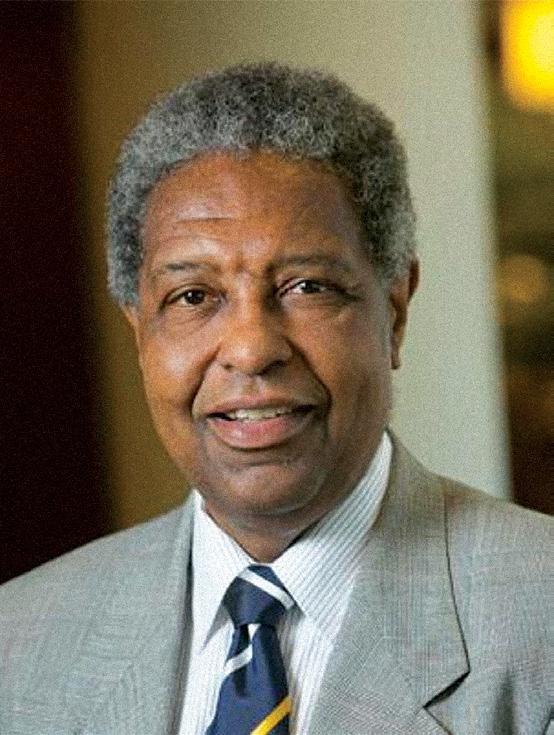 BY JASMINE GALLUP jgallup@indyweek.com
BY JASMINE GALLUP jgallup@indyweek.com
Why hasn’t the U.S. been able to make progress on reparations?
Ever since [the Civil War], you’ve had significant political influence from the old-line Confederacy. That’s reflected in the January 6, 2021, invasion of the Capitol, with all the Confederate regalia that was being flown. But I also think that there’s a deep reservoir of racism that extends beyond the spirit of the former Confederacy. [It] leads people to say, “Well, Black Americans don’t deserve this type of a handout.” Many people have [a perception] that the challenges and limitations Black people face are a consequence of their own behavior, rather than a host of [federal] policies.
What is the conversation around reparations like today?
Only five years [ago], people were running away from the term “reparations” altogether. You would not have seen anybody saying that they were in favor of it. Today there are all these cities, [and] some states, claiming they are going to try to do something they’re calling reparations.
I think the transition point was [in] 2019, when you had some of the presidential candidates for the Democratic Party say they were in favor of reparations. Then in 2020, you had the very visible police murders of Black Americans that resulted in an international outcry. You also had the repercussions of the pandemic that exposed a host of inequalities.
What are the limits of reparations by cities or states?
My fear is that these local efforts will convert good intentions into something far less than adequate. We would be better off if the energy was converted into an active attempt to lobby and petition Congress to do the right thing.
[Writer] Kirsten Mullen [and I] have focused on the target of eliminating the racial wealth gap in the U.S. as the primary objective of a
reparations program. We estimate this would cost somewhere in the vicinity of $14 trillion. The combined budgets of all state and local governments in the United States are less than $5 trillion.
It’s dangerous if people reach the conclusion they have done something significant towards generating reparations by adopting these local proposals when the distance between [state and local funds] and the total [amount needed] is so substantial.
What should reparations look like?
The only serious step that can be taken to eliminate the racial wealth gap is for the federal government to enact a policy to raise the asset level of Black individuals and households to a level that is similar to the average held by white individuals and households.
[Mullen and I] advocate direct payments to eligible recipients. That parallels what was done for victims of the Holocaust by the German government and for Japanese Americans subjected to mass incarceration during World War II by the U.S. government. I know of no social program that has closed nor will close the racial wealth gap. W
Read an extended version of this interview on our website at indyweek.com
Tasers are supposed to be less deadly than firearms, but as we’ve seen, all weapons are lethal in the hands of police.
BY NADA MERGHANI AND BLUE MILLER backtalk@indyweek.comDarryl Williams, 32, was tased to death by Raleigh police on January 18 while unarmed and attempting to flee.
Lovingly referred to as “Boo Boo,” Williams is one of more than 1,000 people who have been killed by police with tasers since 2000. More than 90 percent of these people were unarmed.
Kayla Boyd, who says she was a witness to the killing, spoke at Williams’s vigil in Raleigh last week. She said he was tasered multiple times, his body left out for two hours, and, despite police claims in the Five Day Report, that police made no legitimate attempt to resuscitate him.
WRAL reported that Williams died in the hospital, but Boyd and others say he died on the scene. Williams is remembered as a beloved member of the Triangle’s LGBTQ+ community.
In 2020, 94 percent of America’s roughly 18,000 police agencies issued tasers, largely embraced as a less lethal alternative to firearms. The common justification among police departments, Durham Police Department included, for the use of tasers and other “nonlethal” or “less than lethal” weapons is that they reduce the rate of officer and subject injuries and deaths.
And it makes sense: Who wouldn’t assume a taser is a safer alternative to a handgun?
But the killing of Darryl Williams and other victims raises the question of whether such weapons are actually effective in reducing injury and death in conflicts with police.
In 2005, just a few years after tasers were deployed to police departments, and a slew of police killings followed, manufacturer Axon (formerly known as Taser International) dropped the “nonlethal” characterization. The fact that tasers and other conducted energy devices (CEDs) are not designed to kill by no means determines that they will not kill in the hands of a police officer. A knee need not kill, but that
did not stop Daniel Pantaleo from using it to kill Eric Garner or Derek Chauvin using it to kill George Floyd. Switching a handgun out for a taser, a stun gun, or even a rubber duck does not reduce the killing capacity or absent accountability of police.
In a single tase, victims are administered a 50,000-volt shock followed by 100 microsecond pulses of 1,200 volts. Research has demonstrated that their improper use, which already stands upon shaky definition, can cause significant injury, cardiac arrest, loss of consciousness, seizures, abnormal brain activity, or death. The incomplete understanding of the efficacy and safety of tasers and CEDs, or conducted energy weapons (CEWs), leads us to question how we can justify their use. Research on their physical and psychological impacts is evidently inconclusive, experts state. The scope of the data falls incredibly short given that existing research claiming the safety of tasers and CEDs/CEWs has only included subjects who can be described as healthy, nonstressed, and nonintoxicated and followed their “recommended use.” One would be hard pressed to find someone in an altercation with police to be “nonstressed.”
Tasers and CEDs are used widely while their effects are not understood on disabled or ill people or people using drugs or alcohol. This points to a huge ethical flaw in their use. Despite the fact that there is little to no research on the effects of CEDs on small children, the elderly, pregnant women, and other potentially at-risk individuals, there are no laws against using such weapons on them. The existing gaps in data are compounded by the
fact that Black people, who are more likely to experience heart disease, other people of color, and people experiencing mental and behavioral health crises disproportionately experience use of force by law enforcement.
There are also very minimal restrictions around taser use by law enforcement agencies. Despite the fact that Axon Corporation discourages prolonged or continued exposure, there are no laws or regulations stopping Raleigh police (or most police departments) from using tasers this way. Investigations have demonstrated that many officers are not properly trained on proper use and potential risks and often misuse the weapons. Despite the fact that tasing time is recommended to be no longer than 15 seconds, the M26 and the X26 (Axon’s most popular models) can be repeated countless times with indefinite charge.
Since the early 2000s, several federal courts have offered warnings about the “excruciating pain” they find tasers cause.
In Armstrong v. Pinehurst, courts ruled that physical resistance or attempts to flee did not warrant CED use. Instead, CEDs are only meant for use to protect an officer or third party from an immediate threat of harm. These rulings mean that the taser death of Williams, who was unarmed and fleeing as witnesses say, should be designated a criminal offense. Despite this court ruling, a review of nationwide tasing incidents resulting in death show that 80 percent of cases began as nonviolent incidents, with 84 percent of the people being unarmed. We have seen over and over again that police will use their weap-
ons to the extent and frequency that they desire. And in Williams’s case, the police seemingly wanted to kill.
The Raleigh Police Department’s budget is over $124 million per year, far more than any other city department. Refund Raleigh, a grassroots organization, is demanding that the Raleigh City Council divest from Raleigh PD and instead invest in meaningful social programs that actually keep Black and working-class people safe. The group, in a recent statement on Williams’s death, writes, “Our communities are suffering from lack of investment, affordable housing, health care, fair wages, childcare, and quality education— all public services our tax dollars are supposed to be funding. Yet, cities’ answer to these problems is just to spend hundreds of millions of our tax dollars on policing our communities.”
In 2020 local grassroots organization Durham Beyond Policing launched and won a campaign canceling a $626,910 taser contract between Durham Police Department and Axon Corporation. The deaths of Darryl Williams, Keenan Anderson, Eurie Martin, Manuel Ellis, Thomas Sadler, Everette Howard, Darryl Wayne Turner, and countless others remind us that such wins are life-saving.
Police officers’ demonstrated predisposition to kill Black people, in tandem with tasers’ and CEWs’ lethal capacity, means such weapons are no less deadly than a handgun in the hands of an unaccountable officer. Until we release ourselves from the myth that tasers will stop or reduce cops from killing, we will continue to see tasers and stun guns used to execute beloved members of our community. W
Blue Miller is an organizer with Southern Vision Alliance. Nada Merghani is a senior at NC Central, editor of the school newspaper, the Campus Echo, and an organizer with Southern Vision Alliance.
“Switching a handgun out for a taser, a stun gun, or even a rubber duck does not reduce the killing capacity of police.”

Rocks struck the brown vinyl exterior of Deyli’s Durham home last November. Like a baseball player, her ex-boyfriend pitched each rock with a grin as she crouched behind the faded couch in the living room with her mother.
While yelling “Dumb b——” and other profanities in Spanish, he toggled between anger and sadness. Their relationship now over, he begged her to believe that he hadn’t cheated on her.
They had been apart for three months, but he was not ready to let go.
“He didn’t take it well,” Deyli, 19, said in a phone interview as her mother interpreted her Spanish. The 9th Street Journal is not fully identifying Deyli for her protection. “We didn’t work as a couple anyways. The cheating thing was just another reason I needed to break up.”
With the screen door closed for protection, Deyli’s father opened the front door to scare the 22-year-old away as he continued to launch rocks at the house from the lawn.
“Leave!” the father yelled in Spanish.
He didn’t.
Three weeks later, on a Wednesday morning, Deyli was in Durham County domestic violence court, seeking a oneyear protective order against the ex-boyfriend. Her father stood beside her.
Throughout the hearing, the soft-spoken Deyli constantly looked to her dad.
But Judge Nancy Gordon had bad news: “This court can’t help you,” she said.
Deyli was one of the plaintiffs in court that morning seeking protective orders against people they once loved. But she left court with the same temporary restraining order she came in with.
Deyli’s journey in court began 10 days earlier, when
a judge approved a temporary protective order against her former partner. In such cases, the Sheriff’s Office is supposed to serve the order to the defendant within 10 days. By then, both the defendant and the plaintiff must be present at what’s known as the return hearing. That’s when a judge decides whether to extend the temporary order to one year.
But if a deputy cannot deliver the temporary order to the defendant, the entire process comes to a halt. A defendant can’t show up for the return hearing if he doesn’t know that the restraining order exists. And then, by law, a judge cannot make a decision about the year-long order.
Which means that plaintiffs like Deyli show up for the return hearing only to learn that the court must postpone the proceeding until the defendant is served. And that may never happen.
In 2021, Durham County deputies attempted to serve orders 1,039 times but were successful on 442 occasions. That’s a 58 percent failure rate.
It was a marked increase over 2019 and 2020, when the failure rates were 39 percent and 43 percent, respectively. Sheriff’s Office statistics from January to September of 2022 showed that only 18 percent had failed, although conventional wisdom holds that domestic violence reports typically increase significantly during the winter.

In an email to The 9th Street Journal, Durham County sheriff Clarence Birkhead said that two deputies in his domestic violence unit serve protection orders. Patrol and transportation deputies also serve orders if needed. Asked to elaborate, Birkhead did not provide details as to how or when patrol and transportation deputies are assigned to help the two-member domestic violence unit. Durham County’s challenges mirror the rest of the
state’s, said Nisha Williams, legal director at the NC Coalition Against Domestic Violence (NCCADV).
“You only have but so many people available to do the service,” she said.
In Durham, the Sheriff’s Office typically attempts to serve the order at least once before the return hearing date. In Deyli’s case, that meant that a Durham deputy showed up at her ex-boyfriend’s listed address, but no one was apparently there.
The problem is that deputies are generally unable to try again to serve the order before the return hearing date.
However, according to Birkhead, “90% of Domestic Violence Protective Orders are being served before the 10-day hearing date.” Sheriff’s Office spokesman David Bowser later clarified that the 90 percent rate referred to service attempts.
Greg was in court the same morning that Deyli and her father were.
He was there seeking a year-long protective order against his cousin Laura. According to court documents, after Greg told Laura not to contact him in August, she called him seven times in 20 days. In that same period, she called his stepmother 14 times and his father 21 times.
Nobody called her back.
“Laura’s a lunatic,” Greg said. The 9th Street Journal is not fully identifying Greg to protect his family’s privacy. Their families had been close but had a falling-out earlier this year. Since then, Greg told the court, Laura has instigated conflict and harassed family members. One time, she demanded Greg give her a free tattoo at his parlor. After Greg refused, she repeatedly called, texted, and left him voicemails.
She threatened to break into his house. Another time, she said she would hire someone to hurt his girlfriend.
But after Greg secured a temporary protective order against Laura, deputies weren’t able to serve her. So, like Deyli, the judge had bad news for him too that Wednesday morning: “This court has not acquired jurisdiction to be able to help you.”
Since the pandemic, staffing shortages have crippled the Sheriff’s Office. Last year, Birkhead told radio station 97.9 The Hill that the office was 75 employees short of its intended capacity.
But when The 9th Street Journal asked about staffing, Birkhead referenced a recent community forum during which a North Carolina domestic violence specialist said, “Durham knocks it out of the park every single time,” referring to the Sheriff’s Office successfully serving protective orders.
Others maintain that staffing shortages are indeed a problem.
“The Sheriff’s Office, especially in the
Williams, of the NCCADV, said this is a common problem for deputies. Defendants “aren’t at home when law enforcement is there to serve them.” Sometimes, she also noted, “the defendant is actively hiding.”
And sometimes defendants won’t answer the door.
According to court documents, the Sheriff’s Office does ask which time of day the defendant is typically at the home and work addresses provided. In an email to The 9th Street Journal, Bowser said, “With all civil process— lawsuits, writs, [domestic violence protective orders], etc.—DCSO makes multiple service attempts before returning process unserved.”
Nonetheless, Williams said, “if you don’t have law enforcement around the clock, trying to get that service, it’s going to take a while.”
In an interview, district court judge Amanda Maris, who rotates regularly through domestic violence civil court, said, “It’s not just about having more bodies. It’s about the sheriffs having all
past two years, has had a very hard time with staffing and with allocating resources to service,” said Gigi Warner, Durham Legal Aid Supervising Attorney for Domestic Violence and Family Law.
She added: “The deputy, whose primary job responsibility was to get orders served, they are now having to do many other responsibilities because of staffing shortages.”
The upshot, she said, is that “getting defendants served is an issue.”
Deputies didn’t find Deyli’s ex-boyfriend at the address she gave the court during her initial hearing 10 days earlier.
“It’s important that you have the best address possible to be able to help the police find him,” Gordon said.
In Deyli’s case, it’s unclear exactly why the deputy could not find her ex-boyfriend, but she is confident she gave the best address. “The address that we gave out is the address where he lives at,” she said in Spanish.
“He might have been at the shop?” she asked, referring to the auto repair business where her ex-boyfriend works.
the information they need to have the correct address.”
Deputies successfully served orders 373 times in 457 attempts between January and September of 2022, according to data from the Sheriff’s Office. But when they fail, Williams says, “deputy sheriffs need to be able to re-attempt service at different times before the return hearing date.”
Greg chuckled in open court when the judge said deputies had been unable to find Laura. “They’re [Laura is] probably just bouncing around Charlotte with some random dude,” he said.
The Sheriff’s Office works with local law enforcement in other counties and states to serve defendants. Laura will be added to the list. W
This story was published through a partnership between the INDY and 9th Street Journal, which is produced by journalism students at Duke University’s DeWitt Wallace Center for Media & Democracy.
“The Sheriff’s Office, especially in the past two years, has had a very hard time with staffing and allocating resources.”
When a federal district court judge ruled last year that the North Carolina State Health Plan’s exclusion of gender-affirming treatments for transgender people was discriminatory and unconstitutional, the state’s LGBTQ community celebrated victory in a legal fight it had been waging since 2019.

But that decision is being revisited on appeal this month in a political environment in which conservative activists, politicians, and lawmakers increasingly portray transgender people as mentally ill, those who support them as a threat to children, and doctors who treat them as “mutilators.”
State treasurer Dale Folwell, whose office administers the plan, has championed and strongly defended the exclusion of transgender care since taking office in 2017. He’s also considering a run for governor next year, which could set up a Republican primary battle with Lt. Gov. Mark Robinson, whose fiery anti-LGBTQ statements have become a defining element of his political identity.
“I don’t care how much you cut yourself up, drug yourself up, and dress yourself up, you still either one of two
things—you’re either a man or a woman,” Robinson said in a speech to a Baptist church in Winston-Salem in 2021. “You might be a cut-up, dressed-up, drugged-up ugly man or woman, but you still a man or a woman, and I don’t care who doesn’t like it.”
Opposition to gender transition plays well with segments of the Republican base. Robinson has repeatedly mocked transgender people and characterized them as “filth.” That grabs headlines, but the relative powerlessness of Robinson’s office doesn’t allow for much in the way of realworld policy action on the issue. Folwell’s exclusion of gender-affirming care from the state health plan—along with his willingness to wage long court battles to preserve the exclusion—has been praised by conservative activists as less dramatic but more tangible.
Tami Fitzgerald, executive director of the NC Values Coalition, praised Folwell in a statement last week on the appeal.
“Taxpayers should not be forced to fund elective sex changes and hormone therapy which often result in emo-
tional devastation and regret after healthy body parts are amputated, and permanent damage is done,” Fitzgerald said. “In doing so, we are also enabling the culture’s dangerous narrative that gender is fluid, and that medical procedures can actually change someone’s gender. These procedures not only damage the gender confused, but also open the state up to liability for genital mutilation and emotional distress, which often cause long-term medical problems.”
Fitzgerald’s statements are at odds with more than 40 years of research and treatment of transgender people and the positions of both the American Medical Association and American Psychiatric Association, which consider the treatment at issue necessary and in some cases lifesaving. But they are indicative of right-wing sentiments that will carry a lot of weight in a Republican primary.
Having their personal identities and medical treatment discussed in political and legal terms makes transgender North Carolinians feel like political pawns in a game that is, for many of them, life and death.
“I am disappointed to see that North Carolina officials, particularly Dale Folwell, are doubling down on their discriminatory effort to deny me and others critical medical care by pursuing this appeal,” said Julia McKeown, an associate professor in NC State University’s College of Education and one of the plaintiffs in the suit. “I hope that the court of appeals affirms our win and we can finally put this issue to rest.”
Chief Judge Roger L. Gregory
Nominated by: Presidents Bill Clinton (recess appointment) and George W. Bush
Confirmed by the Senate: July 20, 2001
Judge Steven Agee

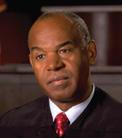
Nominated by: President George W. Bush
Confirmed by the Senate: May 20, 2008
Judge Albert Diaz

Nominated by: President Barack Obama
Confirmed by the Senate: December 18, 2010
The state health plan, overseen by Folwell’s office and a 10-member board composed largely of political appointees, provides coverage for more than 750,000 state employees and their dependents.
Last week, before a three-judge panel of the Fourth Circuit Court of Appeals in Richmond, Virginia, attorney John Knepper defended a blanket exclusion for gender-affirming
In a federal appeals court case, a political fight over transgender identity and health care unfolds.PHOTO VIA WIKIMEDIA COMMONS
care in the plan. His argument: the state doesn’t discriminate against all transgender people because not all transgender people experience gender dysphoria, the psychological term for a significant and prolonged conflict between one’s gender identity and the gender they are assigned at birth.
“The record is clear that there are transgender people who have gender dysphoria and would seek these changes, seek this medical care, and would have physicians recommending it,” Knepper said. “And there are transgender people who don’t have gender dysphoria and have either no desire or medical recommendation to receive this care. There are transgender people on both sides of the ledger, so it’s not a facial classification of transgender people.”
Chief Judge Robert L. Gregory said some people not being interested in services to which they should have access doesn’t make sense as an explanation for eliminating the whole group’s access.
“That’s like saying, ‘We have facial discrimination against Blacks,’” said Gregory, who is Black, “‘but it’s OK because there are some Black people who don’t care about going to a restaurant at all, others who do.’”
“We don’t look at that, their choices, whether there are some transgender people who don’t need these services,” Gregory said. “You cut that off categorically.”
Gregory was a recess appointment of former president Bill Clinton who was later nominated to the same position by former president George W. Bush. Throughout last week’s oral arguments, he expressed strong skepticism of the state health plan’s exclusion. At times he clashed with Knepper, at one point chiding him for shaking his head while the judge was attempting to make a point.
Judge Steven Agee, who was also a nominee of former president Bush, was more sympathetic to Knepper’s positions throughout the oral arguments. He firmly questioned Tara Borelli, senior counsel at Lambda Legal, during her argument for the plaintiffs, but without apparent tension.
Judge Albert Diaz, a nominee of former president Barack Obama, was relatively quiet throughout last week’s arguments as Gregory and Agee dominated the back-and-forth with the opposing attorneys.
“What they’re asking this court to do is to pick up its judicial pen and rescue this exclusion by rewriting it,” Borelli told the three-judge panel. “Because the one they’ve adopted, and the one that they actually have to defend, is so indefensible. It so plainly and clearly discriminates based on sex and transgender status.”
North Carolina was one of a number of states that began covering medically necessary treatment for transgender people in 2017 to comply with federal nondiscrimination laws. That includes everything from talk therapy related to gender transition to hormone therapy and some surgeries. But when Folwell came to office, he dismissed that coverage as unnecessary, too expensive, and out of step with his primary goal of cutting costs. He and the state health plan’s board of trustees let the extension of coverage for transgender treatment lapse. In the face of criticism and lawsuits, Folwell defended the exemption.
“Until the court system, a legislative body or voters tell us that we ‘have to,’ ‘when to,’ and ‘how to’ spend taxpayers’ money on sex change operations, I will not make a decision
that has the potential to discriminate against those who desire other currently uncovered elective, non-emergency procedures,” Folwell told Policy Watch in 2018.
“Sex change operation” is not a term used by medical professionals treating transgender people, insurance companies, or the LGBTQ community. It is widely considered offensive both because of its technical inaccuracy and because a wide array of procedures—not just one operation—are utilized in gender transition.
Knepper and Borelli, in debating the exclusion before the appeals court panel last week, repeatedly apologized for having to use the term—and related terms—when quoting writings and opinions on the subject from years ago.
Last year, when U.S. District Judge Loretta Biggs ruled against the plan’s exclusion, Folwell’s office restored the coverage but also moved immediately to appeal the decision.
Policy Watch has reached out to Folwell for comment on the appeal, but calls were not returned.
As Biggs wrote in her ruling last year, a key point in the case is whether excluding treatments related to gender dysphoria necessarily discriminates against transgender people.
“On its face, the Exclusion bars coverage for ‘treatment in conjunction with proposed gender transformation’ and ‘sex changes or modifications,’” Biggs wrote. “The characteristics of sex and gender are directly implicated; it is impossible to refer to the Exclusion without referring to them.”
“State Defendants attempt to frame the Exclusion as one focused on ‘medical diagnoses, not … gender.’ (ECF No. 37 at 6.),” Biggs wrote. “However, the diagnosis at issue—gender dysphoria—only results from a discrepancy between assigned sex and gender identity. Cf. McWright v. Alexander, 982 F.2d 222, 228 (7th Cir. 1992) (‘[A]n employer cannot be permitted to use a technically neutral classification as a proxy to evade the prohibition of intentional discrimination,’ such as ‘gray hair as a proxy for age.’). In short, the Exclusion facially discriminates on the basis of gender, and heightened scrutiny applies.”
How best to treat gender dysphoria—or even to discuss it—remains a debate even within the LGBTQ community. Its more nuanced definition as a diagnosis in the fifth edition of the American Psychiatric Association’s Diagnostic and Statistical Manual of Mental Disorders (DSM-5) was seen as a step forward as compared to transgender identity itself being considered a disorder. Its definition has also gone a long way toward helping transgender people access medical care and legal recognition they’ve long sought.
In many ways, transgender identity has mirrored the path of homosexuality in terms of mainstream and medical acceptance. When the first edition of the DSM was published in 1952, homosexuality was included as a psychological disorder. With further study and debate, that was changed in 1974 to a diagnosis for those distressed by their homosexuality. By 2013 that, too, was removed.
Many LGBTQ advocates say they look forward to a day when transgender identity is so widely accepted that a medical diagnosis is no longer part of their fight for medical care and legal rights. But for now, political debates and legal fights over who is transgender, how they should be treated when experiencing dysphoria, and whether and how they can legally change their legal gender continue.
Last year transgender people born in North Carolina prevailed in a lawsuit over changing the gender marker on their
birth certificates without being required to medically transition. It isn’t clear when the appeals court will make its decision on the state health plan. But Borelli, the attorney for the plaintiffs, told Policy Watch she believes the original district court opinion will hold up.
“That is the trend we are seeing across the country on these sorts of exclusions,” Borelli said. “The courts continue to make clear that they are discriminatory.” W
This story was originally published online at NC Policy Watch.
A marked incongruence between one’s experienced/expressed gender and assigned gender, of at least six months’ duration, as manifested by at least two or more of the following:
• A marked incongruence between one’s experienced/expressed gender and primary and/or secondary sex characteristics (or in young adolescents, the anticipated secondary sex characteristics)
• A strong desire to be rid of one’s primary and/or secondary sex characteristics because of a marked incongruence with one’s experienced/expressed gender (or in young adolescents, a desire to prevent the development of the anticipated secondary sex characteristics)
• A strong desire for the primary and/or secondary sex characteristics of the other gender
• A strong desire to be of the other gender (or some alternative gender different from one’s assigned gender)
• A strong desire to be treated as the other gender (or some alternative gender different from one’s assigned gender)
• A strong conviction that one has the typical feelings and reactions of the other gender (or some alternative gender different from one’s assigned gender)
The condition is associated with clinically significant distress or impairment in social, occupational, or other important areas of functioning.
Source: American Psychiatric Association Diagnostic and Statistical Manual of Mental Disorders (5th ed.).
Despite pandemic challenges, the Triangle’s Kidznotes youth music program is up and running. But it will need help to keep the doors open.
BY THOMASI MCDONALD tmcdonald@indyweek.comOn most weekday afternoons at South Durham’s Fayetteville Street Elementary School, young minds enrolled in the Kidznotes after-school program create music that spills out into the building’s gleaming hallways.
Youngsters barely out of preschool are studying beginning music in the library. Another group is in the art room studying cello. Another classroom of youngsters is studying viola. Meanwhile, downstairs on the ground floor there’s a percussion class and groups studying violin and piano.
Nearly 50 Kidznotes students, along with the program’s alumni members, teaching artists, and special guest artists are busily preparing for ¡Somos Kidznotes!, the program’s signature, fundraising concert that took place Tuesday night at the Carolina Theatre in downtown Durham.
“It’s something about making music collectively. It’s magical,” Kidznotes’ executive director Shana Tucker says, two days before the event. “There’s a tangibility about music when you’re making music with other people. The room shifts.”
The fundraising event is significant. That’s because financial help can’t come soon enough to shore up a series of pandemic-related sour notes that threatens to derail and permanently shutter the doors of the youth music program.
“We need more money,” Tucker says.
One day before Tuesday’s concert, nineyear-old Isaac McBean plays rich conga for the Afro-Cuban tune “Oye Como Va.”
The iconic tune was made famous by Carlos Santana, but it was actually composed by timbales legend Tito Puente. Four kids accompany Isaac on vibraphones, two play claves, and another plays the guiro. The clave players tap out the rhythm on skinny drumsticks instead of the actual cylindrical polished wood instruments.
Kidznotes’ percussion teacher, Rosendo Peña Suárez, is a native of Venezuela and a graduate of the country’s famed El Sistema youth and children’s orchestras and choirs.
The percussion teacher gently guides the clave players.
“Clave is the spine of the rhythm,” he tells them.
Later, Tucker says the program does not have its own claves. And she does not hesitate when asked if the program could survive another five years in its current financial condition.
“The program may have to close its doors in less than five years unless there is sustained funding,” says Tucker, who points to the challenges of payroll and making good on the salaries of a diminishing group of full-time staffers and teaching artists.
Kidznotes’ financial struggle resonates with Peña Suárez. He grew up in impoverished Venezuela, where the poverty rate
hovers between 50 percent and more than 70 percent.
“The financial crisis for any organization goes directly back to the people,” Peña Suárez says. “The most important thing is to have the heart to teach kids and change lives. I don’t think this crisis will make us give up. I came from a country with its own financial crisis.”
Peña Suárez, who arrived in Durham in 2014 to teach at Kidznotes, says the teaching philosophy at the Triangle program is very much modeled after El Sistema, which has the goal to cultivate “affluence of the spirit,” according to the program’s global website.
“It’s a process, and we’re moving in that direction,” he says. “The only challenge I have is with the language. But the kids are very gentle. They say, ‘No, Mr. Rosendo, you have to say it like this.’ So, I’m learning a lot from these kids.”
Meanwhile, back on the first floor, another McBean, Isaac’s sister Lila, is creating her own musical magic while playing the viola part of the German composer Johann Sebastian Bach’s Bourrée in E Minor.
“That was beautiful. That was cool,” Sinclair Palmer, one of Kidznotes’ teaching artists and a graduate of the UNC-Greensboro music program tells Lila after the two of them finish playing.
Lila beams. She’s been playing the viola
since kindergarten.
“It has four strings,” says Lila, a 10-yearold fifth grader. “I like the lower strings.”
Lila’s love of the lower strings mirrors Tucker’s tonal preference. Tucker is a highly accomplished cellist, singer, and songwriter, who coined the term “ChamberSoul” to describe her blend of jazz, folk, and soul.
One of the songs where she was a featured vocalist, “Better” by The Foreign Exchange, was on former President Barack Obama’s summer playlist last year.
Tucker was a sixth grader living in Amityville, New York, when she volunteered to play the cello for her middle school orchestra after playing the violin since fourth grade.
“I didn’t know what a cello was until sixth grade,” she says. “I played the low strings and it was like, ‘That’s my love.’ The C and E strings. This is it.”
A graduate of the Brooklyn Conservatory of Music, Tucker sees a bit of herself in the Kidznotes program and says she would have benefited from the type of music instruction that’s taught four days a week in Durham and Raleigh.

“I only have a public school education,” she says. “I didn’t take [private] lessons until my senior year [of high school]. My parents couldn’t afford lessons.”
Tucker was finally able to study with a friend of her high school orchestra direc-
tor, who offered lessons on a sliding scale, in order to audition for a college orchestra.
“I decided to go to college for music, not because I wanted to be a musician,” Tucker says. “You wanted to get a college degree, and music paid for college. I didn’t know how to play the cello. I wasn’t taught the mechanics or technique. I was taught how to prepare for an audition.”
Right now, the buoyant, sunny musician is concerned about keeping afloat a youth music instruction program that has enrolled nearly 240 youngsters, where the priorities are music literacy, technique, and fluency.
“Because it’s a language,” Tucker says. “Which means it doesn’t matter what language you speak. With music, you can speak on a global level, across genres.”
The pandemic is threatening to upend Kidznotes, but it also brought Tucker to the program in the first place. She says the program first came on her radar around midsummer of 2020.
“Several people told me about the job description, and told me, ‘You would be perfect for this job,’” she says.
And with the pandemic shutdown in
effect, during a time when most folks had qualms about going to the grocery store, playing live music was out of the question.
“There was nothing else going on,” Tucker says. “I was supposed to go on my first European tour in April, but everything shut down in March.”
She was also looking forward to a Southern California tour that was canceled.
“I would not have seen this opportunity if I hadn’t been standing still,” she says.
She applied for the job as executive director and was offered the position in August. She started in September, overseeing a virtual instruction program months deep into the shutdown. Kidznotes administrative offices are located at the Community Family Life and Recreation Center in the Wst End. She soon discovered the pandemic’s impact on Kidznotes was substantial, especially financially.
The program had been without an executive director for much of 2020. What followed were two years of no in-person performances, and the program “lost touch with its donor base,” Tucker says.
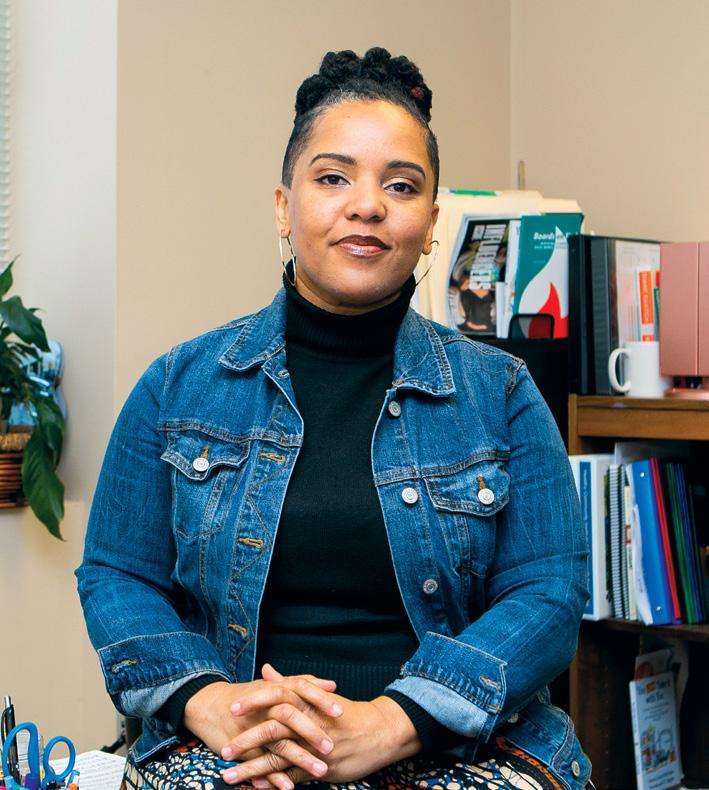
Moreover, she says the philanthropic
focus has changed in the pandemic’s aftermath, and there are more dire needs to consider like housing, food insecurity, and jobs.
“They see our program as just music, without considering other tangible life skills that are learned through music,” says Tucker, who adds that Kidznotes has responded to the new philanthropic focus by shifting the program’s narrative, pointing to its mental health and wellness benefits and opportunities for imparting social and emotional learning, addressing learning loss, promoting multiculturalism, and socialization.
“Since I have been here, it’s been a priority, having our Black and brown kids learn music’s relevance to the rest of their lives,” Tucker says.
Young people enroll in the music program at no cost. About 48 percent of the students are Black and 47 percent are brown, while the rest are white or multiracial. The overwhelming majority of the youngsters are enrolled at Title 1 schools that receive federal assistance owing to the high percentage of students classified as economically disadvantaged.
Before the pandemic there were more than 400 children involved with the program, with nearly a dozen full-time staffers and 50 teaching artists. When Tucker arrived to lead Kidznotes, the program had a bone-thin crew.
“There was a staff of two or three, and the staff development director quit my first day,” Tucker says. “There were 20 teaching artists teaching the virtual program.
“To say that I inherited a skeletal crew is the understatement of the century, especially during the pandemic,” she says. “We’ve been pretty much rebuilding.”
There were other challenges.
Tucker says the program had “minimal institutional knowledge,” meaning “there was no one [left] on staff to say how the program worked.”
“We had to rebuild based on documents we could find,” Tucker adds. “There was no playbook. The playbook had to be found.”
It didn’t help when the Kidznotes program director left. Tucker decided to hire a consultant to help rebuild the program and a program manager.
Kidznotes took a near-immeasurable hit when its founder, Lucia Claire Hutchinson Peel Powe, died on January 10 at the age of 91.
Powe, who founded Kidznotes in 2009, was described by family members in her obituary as “a force of nature,” “an icon,” and “indomitable.”
A 1952 Georgia state beauty queen, Powe was also a teacher, musician, fundraiser, and philanthropist who married E.K. Powe. The elementary school on Ninth Street was
named in Powe’s husband’s honor. In 2008, the couple watched an edition of 60 Minutes that featured the El Sistema program for at-risk children in Venezuela.
According to her obituary, “Lucia was blown away by the impact the music program had on its students.” She turned to her husband and said “someone has to start a program like that HERE.”
The following year, Powe cofounded Kidznotes with Kathie Morrison and Katie Wyatt, who was the program’s first executive director. Powe was passionate about Kidznotes and still involved until she died.
“She would call me two or three times a week,” Tucker says. “She had very clear ideas about what we should be doing. In many ways Lucia was the face of Kidznotes, as much as any of the kids. She would stop people in the grocery store to tell them about Kidznotes and tell them they ought to support Kidznotes.”
Two years ago, Powe hosted a virtual fundraiser in honor of her 90th birthday.
Tucker says her wishlist for Kidznotes starts with “two to three commitments” of multiyear funding for the program, and multiple sources of matching grants “to show the public that it’s important for the community to have skin in the game.”
Tucker says it’s also important to identify sources of operational support to help expand the program. “We’re still in rebuilding mode,” she says.
Tucker says part of that rebuilding includes letting the public know that Kidznotes is still up and running with live performances like the one this week at the Carolina Theatre as well as “getting the students in front of the community,” who will witness firsthand the value of the program, and the value of “tapping into people’s joy.”
There are signs of relief on the horizon. In December, Durham County officials notified the program that it was eligible to receive $150,000 from the Biden administration’s American Rescue Plan Act. The program is also planning an end of year campaign with the goal of raising nearly $500,000.
Tucker says that it’s so much more than teaching children how to become musicians.
“It’s about teaching them citizenship,” she says. “It’s about teaching them leadership. It’s about teaching stewardship and what it means to be in community with others.”
And she is proud of the Kidznotes program, especially the students.
“We ask them to be present and alert,” Tucker says. “It requires a lot to learn the language of music. We want them to show up in the world and represent too, and share their superpowers with the world. Because everybody can’t do it.” W
 BY JASMINE GALLUP jgallup@indyweek.com
BY JASMINE GALLUP jgallup@indyweek.com
Goodnights Comedy Club, a cornerstone of the Raleigh standup scene for more than 30 years, is going underground.
The climb down into the legendary club’s new location in the Village District is reminiscent of a late Friday night at college—stumbling down a narrow flight of stairs into a tiny black-box theater, where you push your way through the crowd only to find yourself crushed into a corner.
This new Goodnights space, at 401 Woodburn Road, is much more spacious than those infamous makeshift stages in Chicago, often found in dingy basements. But on a Friday night, you still have to push your way through the crowd to get to the solid wood bar or find a seat in the tiered performance space.
“When we found this underground space, that was the moment where we’re like, ‘Yeah, this is what we have to do. Go underground where people can just laugh and forget about life on Main Street,’” says Goodnights owner Brad Grossman.
Grossman has been hard at work finishing the new space after moving out of the old location in a historic ice-cream factory on West Morgan Street in July 2022.
The move to Woodburn Road, in January of this year, was a chance to finally mimic the underground design of his first business venture, Helium Comedy Club in Philadelphia, a favorite among audiences, Grossman says.
“The way [Goodnights] was built 40 years ago didn’t match the needs of a comedy fan,” he says. “Sometimes you want to go underground and learn and talk and laugh at the most ridiculous things in life.”
After the seriousness of the past few years, “now is the time” to relearn how to laugh, Grossman says.
“That’s what Goodnights and comedy bring to the community,” he says. “It’s an opportunity to sit back and just take a break from everyday life. Have a drink and enjoy a laugh. That’s pretty important.”
The entrance to Goodnights—camouflaged on a corner just a few yards right of the Flying Biscuit—was easy to spot two weeks ago, on January 20, during the club’s opening weekend. Dozens of people spilled out onto the sidewalk, lining up to see the first of many headliners in the new space, podcaster and Comedy Central regular Anthony Jeselnik.
“We live in South Carolina, actually; we came up for the show,” says George May, who made the four-hour drive with his old college friend Michael Almonte. “We love Jeselnik. We just saw he was touring, and this was one of the closer spots.”
May and Almonte had never been to Goodnights before, but they were thrilled when they heard they could catch one of their favorite comics here, May says. He enjoys Jeselnik’s dark humor and misdirections. As far as the space goes, “it’s dope,” Almonte asserts.
On Friday night, the crowd is loud, chatting and laughing even before the show starts. It’s a full house, with couples and groups of friends sitting at every table, sipping wine and swigging beer next to bare brick walls. The underground space is dimly lit, creating an intimate atmosphere even with an audience of more than 300.
The first opener, Jason Seabrooks, walks on to a burst of music so loud that you can feel the vibrations of the bass. As soon as he enters, there’s nothing but the spotlight and the mic—and of course, the guy on stage, talking about how messed up life is and somehow getting you to laugh at it.
Seabrooks has plenty of in-jokes for North Carolina natives, taking digs at Johnston County with one breath and the audience itself in the next. The next comic, Blair Socci, treads farther over the line, making blunt observations about abortion restrictions and degrading North Carolina’s anti-abortion stance. She’s saying things a lot of people might think but never speak out loud. It’s a relief and catharsis all wrapped up in a surprisingly raspy voice.
Back in the good old days, the Village had a thriving underground complex, thousands of square feet of nightclubs, music venues, and quirky stores. From the early 1970s through the mid-1980s, the Village underground was known for its live music scene, welcoming local legends as well as nationally renowned bands including R.E.M., the Ramones, Pat Benatar, Bette Midler, and even Duke Ellington.
Now, Goodnights is right across from where that once-bustling hot spot lived. That was big, says Grossman.
“I get to kind of revitalize what the community remembered about this area, which was the Village underground,” he says. “To see people come through here [opening] night and just shake their head and smile, you knew you did something right.”
Patrons agree. Ruth Seiler, who came to the club’s opening weekend with her husband, Colin, talks about the Village’s former
to my comedy career so far,” Wildy says, adding that she’s excited to see several other comics also set to record their debut albums in the new space.
Wildy has also performed at Goodnights’ old location and its pop-up in the Village, earning the “hat trick of Goodnights,” she says with a laugh.
The new club “felt like an instant classic,” Wildy adds. “I’ve been in a lot of comedy clubs all over America and the vibe is so perfect. An underground club is always best. [It has] lower ceilings, traps in the laughter, just [makes] better shows.”
Wildy is also a big fan of the comedy scene in Raleigh, which she calls “wonderful.”
“The amount of talent here is wild. It blows my mind all the time,” Wildy says. “Everyone has been so welcoming and friendly of new people coming to the scene. And Goodnights has been so great at highlighting local performers and really giving them a platform. It’s lovely to have a club that’s so supportive … as well as bringing
underground scene fondly.
“I remember when it was Bargain Box down here, when it was the retail. My mom knew it for the underground club scene,” Seiler says. “[Goodnights] is the perfect addition to this area. It feels like it’s been here forever.”

Plenty of popular comedians are slated to appear at Goodnights in the next few months—including Matt Rife, Rachel Feinstein, and Adam Carolla, among others— but welcoming well-known faces from HBO and Netflix is only one part of what Grossman is trying to achieve with Goodnights and its next chapter, he says.
A few days before opening weekend, it was Helen Wildy on the stage, a local comic who moved to Raleigh from Seattle after starting her comedy career in Pittsburgh. In mid-January, she recorded her debut album, thanks to support from Grossman and his recording studio, Helium Comedy Records.
It’s “the biggest thing that’s happened

out all this insane national talent.”
In addition to the expansive main stage, Goodnights also has a small performance space, Room 861, named after the club’s old location.
“It really gives local and up-and-coming comedians an opportunity to perform, when otherwise you would just have a big name on Saturday nights,” Grossman says. “Arguably, the show in here will be funnier because maybe [the comedians] are working that much harder. It’s a toss-up.”
Grossman and his brother Marc want to grow the local comedy industry, he says. They’re using their recording studio to shoot specials for “people you’ve never heard of,” Grossman says.
“We need to get more people into this space [Room 861] to understand that … it’s a nice space to have a drink or go see a show in the small room. It’s just a different experience,” Grossman says. “If we can grow talent, whether it’s on our stages or online, that grows the industry and it’s good for everybody.” W
“I get to kind of revitalize what the community remembered about this area, which was the Village underground.”
It’s six a.m. and there’s no music playing in the kitchen this morning, but there is nevertheless a certain dance to behold between Isaac Henrion and his clocked-in baker, Leah Fiacco, who have been working since four a.m. and have exactly three more hours to boil, seed, and bake 1,200 rings of dough without ramming each other with hot sheet pans or slipping on sesame seeds, which coat the floor in a perpetual booby trap.
Indeed, bagel-making is a ballet of sorts: an art form with little room for error but endless room for expression. Making bagels demands equal doses of precision and vision.
It’s a sensible niche for Henrion, a British expat who spent years working as a computer scientist before a series of pandemic-era pivots led him to the food industry. In the kitchen, he ties his hair back with a butterfly-spotted bandana, chatters about hydration levels and protein percentages, and whirls between ovens with the buoyancy of a man who has figured out how to reach through the computer screen, Wonkavision style, and hold the product of his calculations in his hands.
Soon enough, Henrion, 30, will be dancing on his own stage. Isaac’s Bagels—a business he launched two years ago that has slowly accrued a cult following and currently operates out of a commissary kitchen—is set to open as a brick-and-mortar shop on West Chapel Hill Street in Durham this fall.
For now, though, the production is limited to the commissary space, where Henrion and his team bake seven varieties of bagels each week to distribute at the Durham Co-op, Jewish for Good, and the Durham Farmers’ Market.
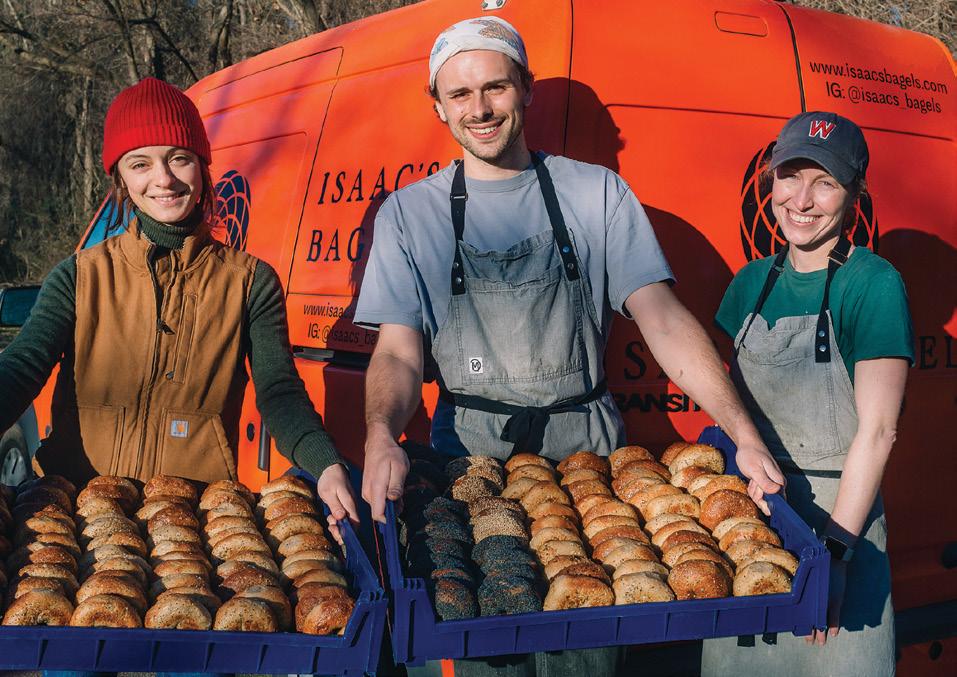
This morning’s batch began two days earlier, on Thursday, with the mixing and shaping of the dough. Forty-eight hours later, after the dough rings have puffed up like little inner tubes, they get boiled in a large pot—a “cauldron,” as Henrion calls it—before being dunked in seeds, placed on pans, and pushed into the oven.
The ovens have hot and cold spots, so Henrion rearranges the bagels every few minutes to ensure an even bake. It’s sort of like watching a card dealer perform an elaborate game of three-card monte.
After the bagels have cooked and cooled, he sorts out the clunkers.
“If they’ve got no belly button and they’re a baseball, they’re not making it,” he says, lobbing an onion bagel into a tub of bulbous rejects. He pauses for a second.
“The sad thump of failure.”
On Instagram and TikTok, Henrion continues, there’s a recent trend among bagel shops called the “knock test,” where a person is shown rapping their knuckles on a bagel, listening for a hollow sound (which indicates doneness), and subsequently ripping the bagel apart with the exerted theatrics one might display while halving a phone book.
Henrion describes the practice as largely unnecessary and “a little macho.”
As far as bagels go, he says, fine feathers make fine birds.
“You want to look for the visual indicators— microblisters, a shimmery crust, a bit of color.” He picks up a poppy-seed bagel. “Slightly blue,” he observes. “It’s the most beautiful thing.”
Production wraps up around nine a.m. It’s time to head to the farmers’ market. Henrion gives the kitchen a final once-over.
“There’s lots of seeds on the floor,” he says. “That’s part of life.”
Henrion started tinkering with bagel recipes in 2020, several months after he dropped out of a PhD program in New York City and moved to Durham with his partner, Karly, who had enrolled in a PhD program at Duke. He’d been laid off from his barista job at the onset of the pandemic, around the time that many people, bored at home,
developed a sudden interest in baking. Henrion, who missed New York bagels, jumped on the bandwagon.
Bagels aren’t just any bread, though. Months later, when other hobbyists were conquering—and growing tired of— sourdough and brioche and focaccia, Henrion still had yet to produce a satisfactory bagel. He plowed ahead, making spreadsheets to map out variables like humidity and fermentation time. His bagels began to improve, enough to the point where he could share them with friends, who then urged him to start selling them to the public. He threw together a website and began distributing pick-up orders at the community garden down the street from his house.
“For the first few weeks, it was just people from the neighborhood,” Henrion says. “And then I started seeing people who I didn’t know—people from other neighborhoods. You sort of realize: if we can scale this up and get better at what we’re doing, maybe we can have a viable business.”
In the months that followed, traffic continued to accelerate. Henrion started offering delivery service.
Besides the obvious Bruegger’s, Durham only has one dedicated bagel shop: Everything Bagels, in the Durham Food Hall. Isaac’s Bagels was filling a glaring gap in the market.
An outpouring of community support enabled Henrion to keep pace with the growing demand.
When the operation became too large for Henrion’s kitchen, Larry Greenblatt, a doctor whom Henrion befriended while volunteering for Greenblatt’s mask distribution ini-
tiative in the early pandemic days, offered his own spacious kitchen as an alternative. (A particularly generous proposition, given the early hours that Henrion’s baking process would begin on Saturdays.)
The offers kept coming. In late 2021, the owners of Ideal’s Sandwich and Grocery hosted an Isaac’s Bagels pop-up. A bagel residency at Queeny’s came soon after.
“Isaac was very impressively committed to growing his business,” says Michelle Vanderwalker, who co-owns Queeny’s, “to finding the right next step, and to doing it well.”
Support from Vanderwalker, and from other local restaurateurs, extended beyond pop-up opportunities, Henrion says. On a Friday night last October, Hurricane Ian knocked out power in the commissary kitchen, leaving Henrion with 2,000 dough rings and no refrigeration. He sent out a plea to Queeny’s and Ninth Street Bakery at 1:30 a.m., asking if he and his employees—who, notably, also responded to Henrion’s middle-of-the-night phone call—could use their kitchens to bake. Both said yes.
Henrion, who didn’t have commercial kitchen or entrepreneurship experience prior to launching Isaac’s Bagels, has also worked to gain industry knowledge from his network of Durham restaurant friends.

“He asked great questions of us,” Vanderwalker says.
Paul Chirico, who co-owns Ideal’s, says that Henrion is cut out for the industry.
“He hasn’t really worked in kitchens,” says Chirico, a New York City native. “But he’s perfect for it. He’s always trying to get better. Trying to improve. That’s what you need to be successful.”
And Henrion isn’t seeking advice from just other business owners. Since the inception of his business, Henrion has placed an extraordinary emphasis on customer input, according to Greenblatt.

“He would have people fill out a form and rate all the characteristics of the bagels,” Greenblatt says. “‘Is it the right texture? Is it chewy enough? What about the size? Is it too salty, or not salty enough?’ He did this iteration after iteration, until he got the bagels where he wanted them to be.”
If Henrion wasn’t so serious about his craft, it could be the setup to a joke: A former computer scientist wants to open a bagel business in a town he just moved to. What route would he take, if not the scientific method? What kind of bagel-scientist would he be if his product weren’t peer-reviewed?

When the brick-and-mortar location of Isaac’s Bagels opens in the fall, service will be takeout only. Henrion says he envisions the shop as a place where students and workers can grab a sandwich and a coffee on their way to school or work, the way he did when he lived in New York.
“I’m sure there’ll be some moments of invention and creativity,” Henrion says. “But we’re planning to be relatively traditional.”
Beyond a selection of bagels and cream cheeses, the menu will include hot and cold bagel sandwiches; deli staples, like whitefish salad, egg salad, and lox; and a mix of pastries and sweets.

The future Isaac’s Bagels space is just two blocks away from the community garden where Henrion got his start. It’s a nice touch of poetry—the bagel maker coming full circle. W
RECYCLE THIS PAPER RECYCLE THIS PAPER RECYCLE THIS PAPER RECYCLE THIS PAPER RECYCLE THIS PAPER RECYCLE THIS PAPER RECYCLE THIS PAPER RECYCLE THIS PAPER RECYCLE THIS PAPER RECYCLE THIS PAPER RECYCLE THIS PAPER RECYCLE THIS PAPER RECYCLE THIS PAPER RECYCLE THIS PAPER RECYCLE THIS PAPER RECYCLE THIS PAPER RECYCLE THIS PAPER RECYCLE THIS PAPER RECYCLE THIS PAPER RECYCLE THIS PAPER RECYCLE THIS PAPER RECYCLE THIS PAPER RECYCLE THIS PAPER
Feb. 2 | 8 pm |
American rock ’n’ roll has always boasted an illustrious tradition of boozy, brainy, country-inflected antiheroes. From counterculture iconoclasts David Crosby and Lucinda Williams to indie icons Jason Molina and David Berman and under-theradar cult artists like Richard Buckner and Lydia Loveless, off-kilter listeners love a good mélange of guitar-based stomp, rural twang, and narrative incision. That explains why Asheville’s Jake “MJ” Lenderman has quietly become a cult favorite of rock critics and in-the-know artists.
His 2022 solo album Boat Songs made (and even topped) several influential bestof lists. Meanwhile, his membership in one of the year’s biggest buzz bands, Wednesday—he plays guitar while his partner, Karly Hartzman, serves as its primary songwriter and frontwoman—has him teetering on the cusp of bigger indie-rock stardom.
At first glance, Lenderman’s superpower seems fleeting. His three full-length albums spin charmingly compact narratives out of 1990s sports nostalgia, foggy memories of drinking too much, and the burning familiarity of friendship and romance. (Every writer’s got a favorite line; mine comes from 2022’s “Six Flags”: “Dripping wet / From the log ride / Insecure from the car ride / Destroyed by your love.”)
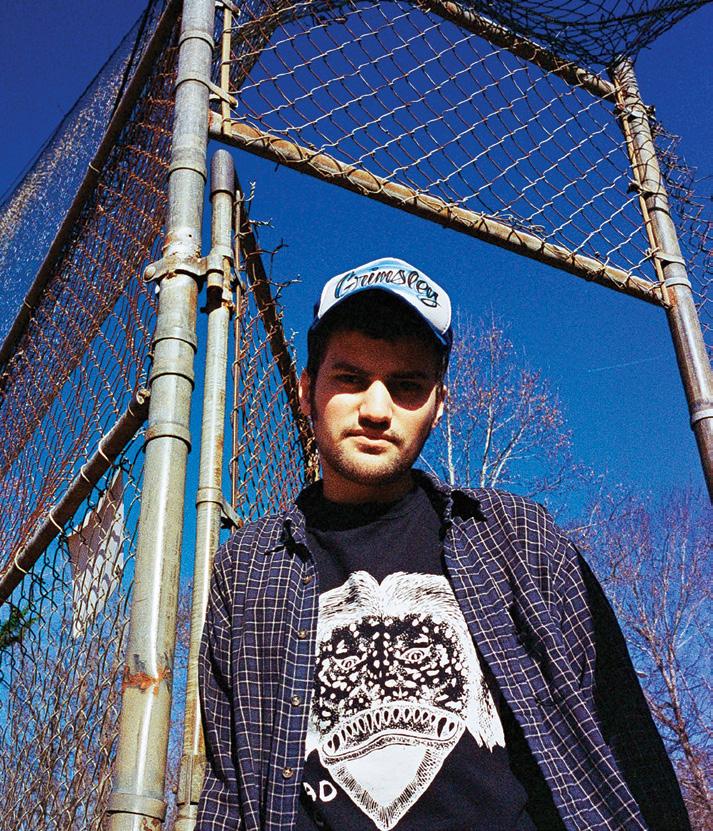
But there’s something intensely sad, sincere, and familiar—in short, timeless—about songs like “Under Control” and “TLC Cagematch,” which telescope out from poor driving and WWE wrestling, respectively, to tearfully grapple with regret and grief. Ahead of Lenderman’s upcoming stop at Cat’s Cradle, INDY Week chatted on the
phone with him about community, craft, characterization, self-deprecation—and, of course, UNC basketball.
INDY WEEK: Your show at Cat’s Cradle in Carrboro is only your second of the year. Are you excited to get back on the road—especially as a warm-up before Wednesday’s new album drops in April?
MJ LENDERMAN: I think I’m ready to get back out there. I’ve been home long enough—I’m starting to get the itch again. And this [MJ Lenderman tour] is not a super long one, either. It’s only a couple weeks, and I won’t have to tour for another month or so after that.
You’re obviously familiar with playing here, right?
Yeah. The Triangle’s one of my favorite places to play. Being from Asheville, it’s kind of the first place I ever went out of town to play. We’ve played Hopscotch in Raleigh every year for the past four or five years. We have a lot of friends there who are great musicians, there are good venues.… It’s a great place with a lot of history.
How about Asheville? How connected do you still feel with your hometown as you—and it—have grown and changed?
It’s a solid community. Growing up here, I
still see familiar faces at Static Age Records, where I’ve been going since I was 14. The tough thing is that there aren’t venues here that fit my bands anymore—they’re either too big or too small. Last time we tried to play in town, the fire marshal came and shut it down. People from outside are starting to think of Asheville as more of a music city, which is cool. It’s not just jam bands.
Boat Songs garnered tons of acclaim last year and Wednesday’s much-anticipated Dead Oceans debut Rat Saw God comes out in April. Has your craft as a writer evolved as your fame has expanded?
Yeah, that’s a funny one. I still try to do the write-20-random-lines-a-day thing, just to have some sort of word bank to pick from when I want to sit down and write. But to
be honest, I really don’t feel like I’ve figured it out. I can go six months without writing. A lot of it has to do with having some sort of practice. Reading helps. I’ve been off my phone a little more lately—and I’ve stopped reading what people think about my old music. That stuff is distracting. So one answer to your question is getting rid of distractions that get in the way of actually working. My own brain—my self-deprecation—gets in the way of writing, too. But the joy that finishing a song brings me never really goes away. That’s always going to make me happier than probably anything else.
Does some of that difficulty come from writing songs that are so true to life? Your lyrics can feel simultaneously tossed off and knife sharp.
Even if a song is written from a first-person perspective, I realized that if I make
the narrator somebody that’s not me, that frees me up to say anything. I can be a bad guy. Honestly, none of my music is from me completely. There are elements of it that are real. It blurs some lines.
Even “Six Flags”? That’s my favorite song, and something about it feels particularly raw.

That one’s actually a true story, now that you say that.
That was actually the first song I wrote for Boat Songs . It was done a couple years before all the other ones. That’s why it’s longer, too. It’s more like the songs on the self-titled [album, 2019’s MJ Lenderman]. It’s written from the same place and person.
Sports references abound in your lyrics. In a past interview, you said, “Around 2020, I started feeling it was OK to like sports again.”

I grew up playing basketball. It was pretty time consuming through middle school and my first year of high school. I practiced every day. But I got super tired of it. The coaches I had were trying to beat you down. I got turned off by that, even though I like the game of basketball. The competition is really primal. I feel like everybody can get down with it if you pay attention. In college, I didn’t feel like the music people I was around thought sports were cool. Now I can just appreciate it. I like to shoot around—just the motion of a jump shot can be meditative.
Who are your favorite basketball players or teams?
I like good shooters—Allen Iverson, Ray Allen. It’s funny, I can talk way longer about early-2000s basketball than I can about what’s happening now. I try to keep
up as much as possible, but it’s hard to pick a team because everybody’s always moving around. I want to see Charlotte do well. I like Memphis, too. I grew up in a college-sports house, so North Carolina basketball is big. But my parents went to UVA, and their team has gotten good in the last 10 years.
UVA beat UNC last month!
There you go.
What else is inspiring you these days?
I’ve been doing some recording for other people, just playing guitar. That’s been a source of inspiration. I haven’t really been listening to anything super new, but I have been revisiting Smog and Bill Callahan. His older music is really simple. He’ll repeat the same phrase a lot until it really makes sense. “I Was a Stranger” from Red Apple Falls is on repeat. I’ve been trying to read more lately, too—a lot of self-taught Southern writers like Larry Brown, Harry Crews, and Breece D’J Pancake, which sounds like a fake name. But he’s a real writer from West Virginia. All short stories—simple language but profound. Everything you want from a book.
You didn’t do a lot of press last year after Boat Songs came out, and it feels like you’re taking a back seat in recent interviews of Wednesday. What do you want from those of us writing about MJ Lenderman?
People want to make some sort of story out of my life or Karly’s life, but I don’t think of myself as very good at talking. The less people hear me talk, the more they can project on me or think I’m a smart guy. It’s mostly a protective mechanism on my part—and maybe a little laziness. But as a music fan myself, I’m always grateful when people do these kinds of interviews. W
“The joy that finishing a song brings me never really goes away. That’s always going to make me happier than probably anything else.”
This week The End of the World, John Waters’s apocalyptically titled new standup special, lands at the Carolina Theatre—though the world should also be worried about the general state of things if the acclaimed director ever stops touring. Waters’s standup specials are as reliably consistent as a calendar.

“I’ve been doing this for 50 years,” he says, over a slightly static-filled phone call from his home in San Francisco. “I always rewrite my show. This one’s called The End of the World, which I think very much reflects how everybody feels.”
But Waters is here to charm his way through that feeling.
“Everybody’s despairing,” he says, “but I’m bringing that insane optimism of how we’re going to overcome and become ‘half-full’ kind of people.”
Exactly how he’s going to drag us alone with him into insane optimism though, Waters declines to say. “You’re going to have to see the show to get that,” he says. “If I tell you in this interview, I won’t have any material left.”
Waters has been making films since he was kicked out of NYU for smoking pot in the 1960s. While some are tame enough to be universally beloved (think Hairspray), many more are what Waters himself calls “trash epics” (think Pink Flamingos, which features as its finale a scene of Waters’s friend and longtime collaborator, Divine, eating dog poop). Many of his films are set in Baltimore, where Waters grew up, and are intentionally provocative. The punk, gay ethos of his work has made Waters a cult figure for decades, especially among the
LGBTQ+ community. He has also written several books, most recently his first novel called Liarmouth; exhibited fine art in prestigious museums and galleries; hosted an annual adult sleepaway camp since 2014; and written and toured a new standup special at least once a year for decades.
Over his decades as a filmmaker, Waters has consistently made fun of himself and his community, which he believes opens doors to making fun of others. “If you have a good sense of humor about yourself, you can make fun of everybody else,” he says. “But you have to make fun of yourself, which I certainly have.” By dubbing his own films trash epics, he says, he beat his “critics to the typewriter.”
But Waters’s critics and fans at least pay him the shared compliment of taking his jokes seriously. Just a couple of months ago, Hairspray was added to the National Film Registry of the U.S. Library of Congress and—perhaps even more surprisingly—Pink Flamingos was aldo added in 2021. (“Who would ever have imagined that happening?” Waters says.)
In a recent much-debated list of the 100 Greatest Movies of All Time, Variety ranked Pink Flamingos at number 92, noting its original review, which Waters has more or less memorized, which describes the film as “one of the most vile, stupid and repulsive films ever made.”
Recently, Waters attended a screening of Pink Flamingos and realized the young audience was seeing it for the first time.
“It was great because they started out really laughing, then they got quiet, and then they were like ‘oh my God,’” he says,
gleefully. “So it still worked. I did win. I am the filthiest person alive. Even though Johnny Knoxville is pretty close. I share my crown with him.”
Waters thinks Pink Flamingos is more shocking now because of “political correctness,” which perhaps seems a conservative take for a filmmaker like Waters, though the opinion opens itself to nuance with more discussion.
Unlike some entertainers who have spoken out against political correctness, Waters doesn’t miss being able to use racial slurs. And while he does think anybody should be able to make a joke about anybody, although it is “much harder,” he’s not mean. Waters believes in a twisted humility: “If you have a good sense of humor about yourself, you can make fun of everybody else,” he says. “But you have to make fun of yourself first.”
To this end, in his work, Waters typically makes fun of liberals, himself, and the way he responds to political correctness, as much as “the other side,” noting that “conservatives gave up on me long ago.” Though he’ll go on Fox News whenever asked, Waters says, this is in order “to sell books, to go into enemy territory, and to stay sharp.”
“Never make the enemy feel stupid, even
if they are,” he adds. “Make them feel smarter by thinking something you said is funny, and then they’ll listen.”
Waters also grants that things have changed for the better in many ways, including the darkening of American humor.
“Lenny Bruce went to jail for saying ‘fuck’ and now everyone says it all the time,” Waters says. “So things have radically changed that way, and I think for the better.”
Another sign of progress is “to admit there is such a thing as a bad gay movie,” Waters says, although he was not willing to name any in the interview. “My job is to praise what others despise, not the other way around,” he says, with the exception of Forrest Gump, which he does not like (but knows it’s won enough Oscars that nobody cares). While I’m confident that attendees of Waters’s upcoming special will learn about plenty of things Waters is and isn’t into at his show, Waters didn’t want to spoil exactly what he talks about in the special.
The most I could get were broad strokes: “It’s about politics. It’s about movies. It’s about fashion, but it has to be up to date, certainly,” he says. “So I changed the title just to let people know that I have rewritten it.”
We will simply have to wait until The End of the World to get our full lesson in optimism. W
SA 2/11 @CAT’S CRADLE KIMBRA W/TEI SHI

SA 3/25 SU 3/26 @CAT’S CRADLE ARCHERS OF LOAF
SOLD OUT
FR 2/17 AMY RAY BAND
(W/ KEVN KINNEY)
CAT'S CRADLE
2/1 WE SUKI WATERHOUSE W/BLONDSHELL
2/3 FR FLIPTURN W/ HOTEL FICTION
2/4 SA BOB MARLEY BIRTHDAY BASH W/MICKEY MILLS & STEEL, JAMROCK, ZION PROJECT. HOSTED BY DJ RAS J ($15/$20)
2/9 TH WARREN ZEIDERS W/AUSTIN SNELL
2/10 FR KATHLEEN EDWARDS W/ MATT SUCHICH ($25/$28)
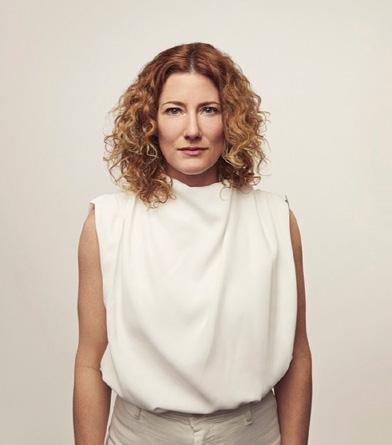
2/11 SAKIMBRA W/TEI SHI ($24/$28)

2/13 MO STRFKR W/ DAS KOPE
2/17 FR ADAM MELCHOR ($22/$25)
2/24 FR GREENFIELD PROD. PRESENTS: FUTUREBIRDS
2/25 WE WEYES BLOOD

FR 2/10
4/18 TU SAMIA
4/22 SA THE MOUNTAIN GOATS
4/23 SU THE MOUNTAIN GOATS W/ ADEEM THE ARTIST
4/24 MO THEO KATZMAN
4/25 TU FRUIT BATS
4/29 SA DAVID CROSS W/SEAN PATTON
5/3 WE YAEJI ($25/$28)
5/9 TU HOODOO GURUS
5/27 SA THRICE W/ HOLY FAWN ($30/$36)
6/16 FR WEDNESDAY W/ TENCI ($15/$18)
6/25 SU JOSEPH
6/29 TH EELS ($37/$39)

3/11 SA CURTIS WATERS
3/13 MO RUNNNER W/ WAVEFORM*
3/16 TH DUCK, FLORENCE & THE FEELING, ELORA DASH

3/21 TU CHEEKFACE W/ SAD PARK
FR
CRADLE KATHLEEN-EDWARDS
W/MATT SUCHICH
27 MO JUNIOR BOYS W/ HAGOP TCHAPAARIAN
3/3 FR: CHATHAM COUNTY LINE W/ LIBBY RODENBOUGH
3/9 TH AN EVENING WITH YO LA TENGO
3/10 FR AN EVENING WITH YO LA TENGO
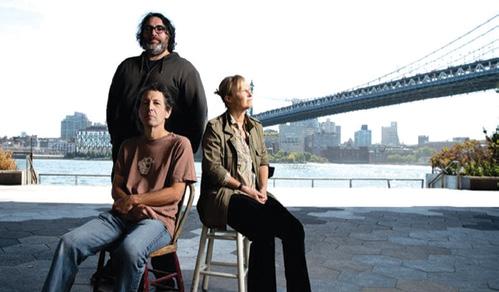
3/14 TU EMILY SCOTT
ROBINSON / ALISA AMADOR / VIOLET BELL
3/21 TU RIVERSIDE W/ THE CYBERIAN DUO
3/22 WE WHITE REAPER W/ MILITARIE GUN, MAMALARKY
3/25 SA ARCHERS OF LOAF
3/26 SU ARCHERS OF LOAF
3/28 IBEYI ( RESCHEDULED)
3/29 WE CRANK IT LOUD PRESENTS:OUR LAST NIGHT / FAME ON FIRE / RAIN CITY DRIVE
4/2 SU THE RESIDENTS
4/3 MO JAWNY W/ WALLICE
4/4 TU JOYWAVE W/ ELIOT LEE
4/6 TH THE CHURCH –THE HYPNOGOGE ALBUM TOUR
4/7 FR DUSTER W/ WIDOWPEAK
4/15 SA: BUILT TO SPILL
4/16 SU: CAROLINE ROSE W/HAMMYDOWN
7/ 17 IGORRR, MELT BANANA, OTTO VON SCHIRACH (RESCHEDULED)

7/ 26 OSEES ($25 ADV/ $28 DAY OF)
3/24 FR MEDIUM BUILD W/ ZINADELPHIA
3/25 SA JERVIS CAMPBELL W/ THOMAS AUSTIN
3/26 SU NICOTINE DOLLS ($15/$17)
3/27 MO MAGIC GIANT ($18/ $20)
3/28 TU CRANK IT LOUD PRESENTS PHONEBOY
3/29 WE SHAWN MULLINS + LARRY CAMPBELL& TERESA WILLIAMS
3/31 FR WYATT EASTERLING / CAROLINE COTTER
4/4 TU FREE THROW / CAN’T SWIM / HEART TO GOLD / EARLY HUMANS
4/8 SA JPHONO1, JENNYANYKIND, MAYFLIES USA
4/9 SU HIGH VIS
4/12 WE THE BOBBY LEES
4/13 TH COCO & CLAIR CLAIR
TH WARKA / THE AUXILIAY, UNO DOSE
2/24 FR ROYAL ARCTIC INSTITUTE, /SHARK QUEST, PAUL SWEST.
2/25 SA LEMON SPARKS, BRETT HARRIS, CARTER HODGE
3/2 TH: SAM GRISMAN PROJECT PRESENTS THE MUSIC OF GARCIA/ GRISMAN
3/3 FR BAILEN W/ ELIZABETH MOEN
3/5 SU MIKAELA DAVIS ( $15/$18)
3/10 FR BILMURI
SOLD OUT
4/14 FR HAPPY LANDING
4/15 SA DONOVAN WOODS & HENRY JAMISON W/ ISABEL PLESS

4/20 TH SAM BURCHFIELD & THE SCOUNDRELS
4/27 TH PEDRO THE LION W/ ERIK WALTERS
5/3 WE DESTROYER ( SOLO)
5/10 WE TRANSVIOLET W/ JAGUAR JAGWAR
5/27 SA WESTERMAN
TH 3/9 FR 3/10 AN EVENING WITH YO LA TENGO
SOLD OUT
HAW RIVER BALLROOM (SAX
2/6 MOPATTY GRIFFIN
W/ ALEXA ROSE
2/10 FR G. LOVE & SPECIAL SAUCE/ DONAVON FRANKENREITER / NAT MYERS
2/17 FR AMY RAY BAND

W/ KEVN KINNEY
3/20 MO NEW FOUND GLORY W/ LEANNA FIRESTONE
4/22 SA ANDY SHAUF
W/ MARINA ALLEN
5/21 SU THE NEW PORNOGRAPHERS RITZ (RALEIGH)
THE ARTSCENTER (CARRBORO)
3/8 WE THEY MIGHT BE GIANTS
SOLD OUT
3/27 TU TENNIS – THE POLLEN TOUR W/ KATE BOLLINGER
5/27 SA BACKSEAT LOVERS SHOWS AT MOTORCO ( DURHAM)
SOLD OUT
3/20 MO THE LEMON TWIGS
W/ CHRIS STAMEY GROUP
3/ 21 TU SOULSIDE
W/ J ROBBINS (BAND)
3/27 MO AVEY TARE
5/10 WE SHAME
5/22 MO OFF! ( RESCHEDULED)
6/5 MO FENNE LILY AND CHRISTIAN LEE HUTSON
CAROLINA THEATRE DURHAM
2/11 SA ANGEL OLSEN W/ ERIN RAE
RED HAT AMPH (RALEIGH)
4/ 14: MT JOY
2/10 @CAT’S
 BY MICHAELA DWYER arts@indyweek.com
BY MICHAELA DWYER arts@indyweek.com
On a balmy 69-degree January day— the kind of increasingly common winter day that nullifies “unseasonable” as a meaningful weather descriptor—the poet, educator, and climate activist Sarah Rose Nordgren jokingly admits to being the “climate anxiety friend” in her social circle.
“People are feeling apathetic, or depressed, or terrified, and they’ll say, ‘Hey, what should I be thinking about?’ Or ‘What would help?’” Nordgren says, before debunking and reframing the anxiety of “expertise” in the face of climate crisis. “The skills, the knowledge, and the art that we need: some of it already exists; some of it is still in development. But it’s all actually learnable. It’s not like we failed and it’s over.”
This pedagogic impulse animates the School for Living Futures (SLF), a new creative interdisciplinary project organized by Nordgren in collaboration with her sister, Krista Anne Nordgren (one of the stewards of the Mothership, the unique coworking and event venue that closed during the early days of COVID-19). The school’s first initiative is Living Futures Saturdays, a fourpart sliding-scale-ticketed series bringing together a diverse set of climate-engaged artists, activists, and researchers to present material at Perfect Lovers, the coffee shop and art space on Roxboro Street in North Durham. The school aims to become a “hub for programming and projects” that “counteract climate despair, denial, and inaction.”
Calling the project a school is a gesture toward a platonic ideal of educational community as an equitable site for “creation and possibility,” as Sarah Rose puts it—a space that “supports activities that aren’t necessarily valued or supported by capitalist society.” Invoking the term is also a way to acknowledge that formal curricular mod-
els often leave timely sociopolitical issues at the seminar table. (SLF’s use of “school” mirrors that of accessible like-minded counterinstitutional education projects like Western North Carolina’s School of the Alternative and Durham’s own Night School Bar.)
As a poet engaged with matters of ecology and the natural world, Sarah Rose—who has published three books of poetry, most recently 2022’s The Creation Museum—had long found the academy an amenable place to make work. But while finishing her doctorate in English and creative writing at the University of Cincinnati in the pre-pandemic years, she found her sense of urgency around climate issues shifting. After getting involved with the environmental activist group Stand, she realized that being “an actual body in the street” felt significant.
Returning to her hometown of Durham with her partner and son early in the pandemic, she began seeking the same embodied engagement in Durham. She began going to political actions (especially withthe indigenous-led grassroots organization 7 Directions of Service) and meeting people in the local creative scene—also tapping into her sister Krista Anne’s extensive local networks—to get to know the climate-engaged work already happening here.
In doing so, Sarah Rose adopted a curatorial lens, beginning to dream up an interdisciplinary container—a sort of third space complementing on-the-ground climate activism and academic-institutional research— for “the people who are already here doing amazing [climate-responsive] work.”
One of the first people she reached out to was Bevelyn Afor Ukah, a justice educator, food systems worker, and cofounding consultant for the NC Climate Justice Collective’s Training Cooperative. Afor Ukah’s talk
“Our Ecology: Shifting Our Gaze Inward,” which opens the Saturday talk series in a pairing with environmental artist Bryant Holsenbeck, draws upon her extensive work with the Climate Justice Collective, whose multiracial, intergenerational movement approach centers communities who are first and worst impacted by environmental destruction. For Living Futures Saturdays, Ukah will focus on the connection between creativity and self- and community healing.
“I have been reflecting a lot on art and access, and the ways public art, or shared storytelling processes, heal us,” Afor Ukah says. “My talk will explore the concept of ‘active hope’ by offering some tools and traditions of storytelling. It is necessary to take an honest look at who we are to envision a future that is regenerative.”
Afor Ukah’s gesture toward “active hope” emblematizes the series’s investment in platforming people whose work not only proposes “different ways of thinking about what can be and what should be,” Sarah Rose says. “They’re all actually trying to make [those ideas] happen.”
Among other future speakers, the series includes UNC geography professor and Black geographies researcher Danielle Purifoy, Radical Repair Workshop steward and artist Julia Gartrell, and environmental photojournalist Justin Cook.
“They’re also all really dedicated community members,” Sarah Rose says. “None of the people in this series are doing their work in any kind of cloistered capacity but are all really engaged with what’s going on, both locally and [in a broader sense].”
The speaker series’s physical home is fitting here. Perfect Lovers, which opened in 2022 and is run by artist and barista Carrie Elzey, has quickly filled a gap within the
vast network of COVID-related closures of independent art spaces in Durham, with its prolific slate of creative programming. (Elzey describes their curatorial philosophy as wanting to host events that are “challenging or interesting or suitable for the times.” SLF perfectly fit the bill.) The popularity of spaces like Perfect Lovers, Krista Anne ventures, speaks to this shifting moment in Durham’s cultural infrastructure when community members are looking for a “foothold”—a place to bring their “everyday creative energy and connect with people.”
“When I think of the creative projects that existed in Durham before the pandemic, I think it was more about ‘How do we create a social scene and a community in this place that’s still growing?’” Krista Anne says. “Now, I think that that [scene] exists and there’s so many young people in Durham who are politically conscious and motivated. But how do we actually get them connected and [building] community around those things?”
SLF offers one answer. Beyond the speaker series—which will likely return in the fall, if this run is successful—Sarah Rose envisions weekend workshops on visible mending, gardening, peer counseling, and dance across local sites. And while she aims for more future representation from the sciences, the series’s rooting in the work of creative makers feels significantly suited to the personal-political reckoning brought about by environmental shifts.
“Even if all of these, like, worst-case-scenario climate projections come true, this is how I’m spending my life,” Sarah Rose says. “I can look my child in the eye and say I was a part of things that are really beautiful and meaningful. And that’s not something that can be taken away from you.” W
Neil Francis $18. Wed, Feb. 1, 8 p.m. Lincoln Theatre, Raleigh.
Suki Waterhouse SOLD OUT. Wed, Feb. 1, 8 p.m. Cat’s Cradle, Carrboro.
Ciompi Quartet
Thurs, Feb. 2, 5:30 p.m. NorthStar Church of the Arts, Durham. Fri, Feb. 3, 12 p.m. Goodson Chapel, Durham.
Jaime Wyatt / Nicholas Jamerson $15. Thurs, Feb. 2, 8 p.m. The Pour House Music Hall, Raleigh.
Mellow Swells / Royal Jelly $10. Thurs, Feb. 2, 8:30 p.m. Rubies on Five Points, Durham.
MJ Lenderman SOLD OUT. Thurs, Feb. 2, 8 p.m. Cat’s Cradle Back Room, Carrboro.
Thee Sacred Souls SOLD OUT. Thurs, Feb. 2, 8 p.m. Motorco Music Hall, Durham.
Booty Break Dance Party featuring Savant, Miss Beatz, Isabel Essence, and Kino Del Sur $10. Fri, Feb. 3, 10 p.m. The Pinhook, Durham.
Daniel Seyfried (piano) with Sandra Cotton (mezzo soprano), Simon Ertz (viola), and Bonnie Thron (cello) Fri, Feb. 3, 7 p.m. Nelson Music Room, Durham.
Flipturn SOLD OUT. Fri, Feb. 3, 8 p.m. Cat’s Cradle, Carrboro.
Gay Agenda: First Friday $5. Fri, Feb. 3, 10 p.m. Rubies on Five Points, Durham.
Jon Shain and FJ Ventre $12. Fri, Feb. 3, 8 p.m. Cat’s Cradle Back Room, Carrboro.
Lovell Bradford Trio $20+. Fri, Feb. 3, 8 p.m. Sharp Nine Gallery, Durham.
Bob Marley Birthday Bash $15. Sat, Feb. 4, 8:30 p.m. Cat’s Cradle, Carrboro.
Carnaval Constante with DJ Bagaceiro $5. Sat, Feb. 4, 10 p.m. Rubies on Five Points, Durham.
Colby Acuff $13. Sat, Feb. 4, 9 p.m. Cat’s Cradle Back Room, Carrboro.
Dave O’Connor Sat, Feb. 4, 5 p.m. The Oak House, Durham.
The Keenan McKenzie Sextet Tribute to the Benny Goodman Small Group $20+. Sat, Feb. 4, 8 p.m. Sharp Nine Gallery, Durham.
Poulenc Trio $10+. Sat, Feb. 4, 8 p.m. Baldwin Auditorium, Durham.
Rent Due Dance Party! $5+. Sat, Feb. 4, 10 p.m. The Pinhook, Durham.
Pinkerton Raid $10. Sun, Feb. 5, 7:30 p.m. The Pinhook, Durham.
A Steady Rain $25. Jan. 21–Feb. 4, various times. Theatre Raleigh, Raleigh.
Hamlet $20+. Jan. 25–Feb. 12, various times. PlayMakers Repertory Company, Chapel Hill.
Mlima’s Tale $20+. Jan. 26–Feb. 12, various times.
Burning Coal Theatre Company, Raleigh.
Cats $30+. Jan. 31–Feb. 5, various times. DPAC, Durham.
Out to Lunch: Improv Comedy Wed, Feb. 1, 7:30 p.m. Rubies on Five Points, Durham.
My Name Is Asher Lev $25. Feb. 3-12, various times. Ridge Road Baptist Church, Raleigh.
John Waters: The End of the World $47+. Fri, Feb. 3, 8 p.m. The Carolina Theatre, Durham.
A Walk in August Feb. 4 and 6, various times. The Carolina Theatre, Durham.
Dreamgirls $23+. Feb. 7-12, various times. Duke Energy Center for the Performing Arts, Raleigh.
February One
$8. Wed, Feb. 1, 9:50 and 11:20 a.m. The Carolina Theatre, Durham.
Songs of Love through the Ages Sun, Feb. 5, 3 p.m. White Memorial Presbyterian Church, Raleigh.
Flash Chorus: Sing Billy Joel and Phoenix $10. Mon, Feb. 6, 7 p.m. Motorco Music Hall, Durham.
Patty Griffin $37. Mon, Feb. 6, 8 p.m. Haw River Ballroom, Saxapahaw.
Durry $13. Tues, Feb. 7, 8 p.m. Cat’s Cradle Back Room, Carrboro.
Carolina Ballet: Grieg: Piano Concerto $40+. Feb. 2-19, various times. Duke Energy Center for the Performing Arts, Raleigh.

The Adventures of Tortoise and Hare: The Next Gen $8. Tues, Feb. 7, 9:45 and 11:20 a.m. The Carolina Theatre, Durham.
Fight the Power: How Hip Hop Changed the World Wed, Feb. 1, 7 p.m. Online; presented by PBS North Carolina. Ackland Film Forum: Short Films by Ghost of a Dream Tues, Feb. 7, 7:30 p.m. Ackland Art Museum, Chapel Hill.
Talking Black in America: Roots Tues, Feb. 7, 7 p.m. D. H. Hill Jr. Library, Raleigh.
Opening Reception for True Likeness and This Is Not: Aldwyth in Retrospect Thurs, Feb. 2, 6 p.m. Gregg Museum of Art and Design, Raleigh.
Artspace First Friday Fri, Feb. 3, 6 p.m. Artspace, Raleigh.
Ibram X. Kendi and Nic Stone: How to Be a (Young)
Antiracist $24. Wed, Feb. 1, 7 p.m. Jones Auditorium, Raleigh.
Corrie Lynn White: Gold Hill Family Audio Thurs, Feb. 2, 5:30 p.m. Flyleaf Books, Chapel Hill.
Margaret Edds: What Eyes Can’t See Tues, Feb. 7, 5:30 p.m. Flyleaf Books, Chapel Hill.
If you just can’t wait, check out the current week’s answer key at www.indyweek.com, and click “puzzles page” at the bottom of our webpage.

720 Ninth Street, Durham, NC 27705
Hours: Monday–Saturday 10–7 | Sunday 10–6



© Puzzles by Pappocom
this week’s puzzle level:
There is really only one rule to Sudoku: Fill in the game board so that the numbers 1 through 9 occur exactly once in each row, column, and 3x3 box. The numbers can appear in any order and diagonals are not considered. Your initial game board will consist of several numbers that are already placed. Those numbers cannot be changed. Your goal is to fill in the empty squares following the simple rule above.

If you just can’t wait, check out the current week’s answer key at www.indyweek.com, and click

“puzzles page”.
Best of luck, and have fun! www.sudoku.com
Scientist II/III, Analytical R&D
Tergus Pharma, LLC seeks a Scientist II/III, Analytical R&D in Durham, NC to author product development & investigation reports. Reqs: MS in Chem, Bio, Pharma, or related + 2 yrs or BS in Chem, Bio, Pharma, or related + 5 yrs. For full reqs & to apply visit https://www.terguspharma.com/current-job-openings/ and search for Scientist II/ III, Analytical R&D Req#2022-0010..
Regional Clinical Sales Manager
Teleflex LLC seeks a Regional Clinical Sales Manager (RCSM-SG) in New York, NY. Develop & maintain expertise in clinical application of vascular access products, medical literature, standards of practice, societal guidelines, competitive landscape, & industry trends. Req 20% US travel. Must reside near New York metropolitan area to provide service to key customers. Req Bachelor’s + 2 yrs exp. Salary: $112,778 - $155,600/yr. Email resume to tfxjobs@teleflex.com. Must ref job title & code RCSM-SG in subj line.
Associate Scientist


KBI Biopharma, Inc. seeks an Associate Scientist in Durham, NC to perform contract development services, including analytical development programs for monoclonal antibodies, recombinant proteins, and peptides. MS & 4 years. For full req’s and to apply visit https:// www.kbibiopharma.com/careers Job Reference Number: R00004611

The most recognized award throughout the Triangle is back for 2023—
Nominate your favorite Wake County bar, veterinarian, bookshop, museum—whatever it may be, there are over 100 categories in which you can profess your favorite Wake County treasures. Have no fear: Durham and Orange/Chatham Counties will have their own nominations soon.